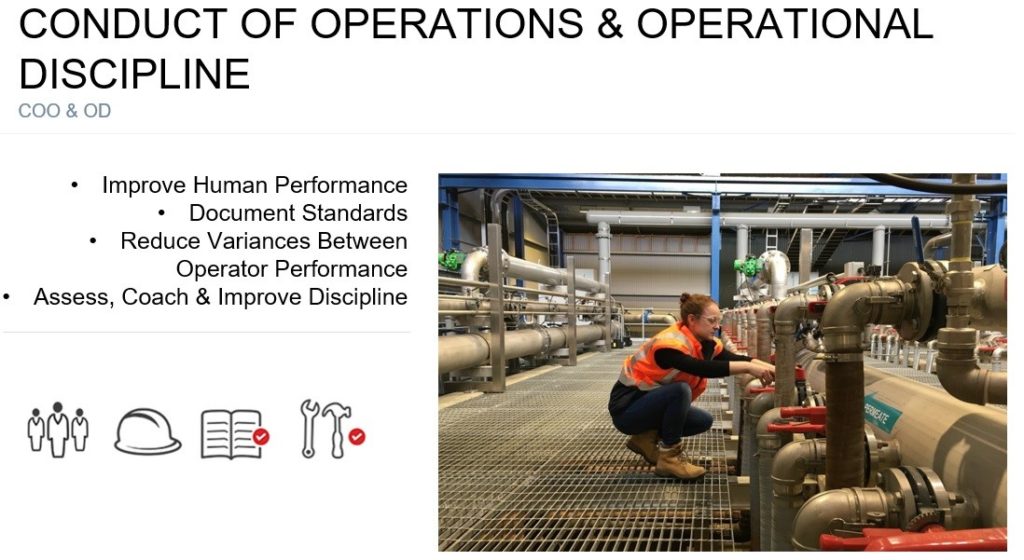Operator Management

Apart from the operator user interface and control room or field environment, is operator behavior and management, known as Conduct of Operations. This is a system of improving human performance to ensure that every task is performed correctly, every time, even when nobody is watching.
This is accomplished when you put documented standards in place that operators understand and follow like understanding their roles and responsibilities (not a job description) a procedure standard, a philosophy or guideline that clearly defines the expectation for following and updating procedures. This standard should be supported by management systems like a procedure management software tool.
Operational management systems improve operator discipline and will change the culture. These standards are designed for operators to reduce variances in performance between the more experienced operators versus the newer operators, and provide management a way to assess, coach, and improve operator discipline during job tasks.
Implementing a Conduct of Operations program will change the culture overtime. Operators need to understand what the expectations are, they need to be trained on the best practice, so we have to document the standards that support different operator tasks if we expect to improve operator discipline and performance.
In field operations, it’s all about getting the field operators to take ownership of the equipment and to work closely with control room operators as a team. This can be achieved when you design a control room that involves the field operators, specifically addressing communication, field shelter design (communication centers), and technology that can be used to improve communications during abnormal events.
A major operational practice that needs to be formalized is Shift Handover. This is a great opportunity to develop a site standard and develop a fault proof procedure. Another is MOOC: Management of Organizational Change. Just like an MOC on equipment changes, you should have formal process for managing changes to the organization. It may be more responsibility added to a position, it may be a 2 person job that is now a 1 person job. An MOOC will ensure that safety is not compromised during abnormal situations like a power outage, proving that the proposed organization change is effective and the operator can still return the plant to a safe state during these events.
Keep us in mind for assessments of your operational management systems. Now, more than ever, we need to identify these gaps and protect our people: www.mycontrolroom.com
